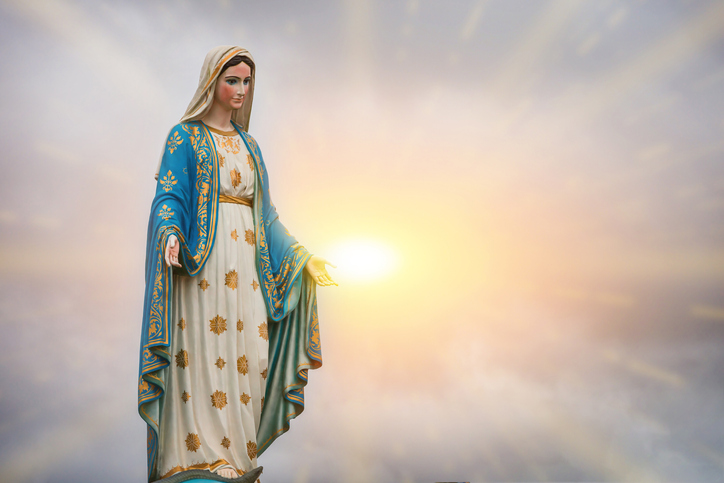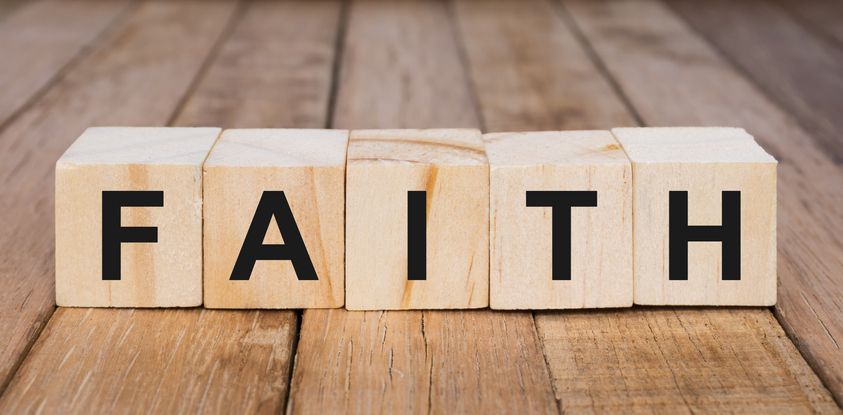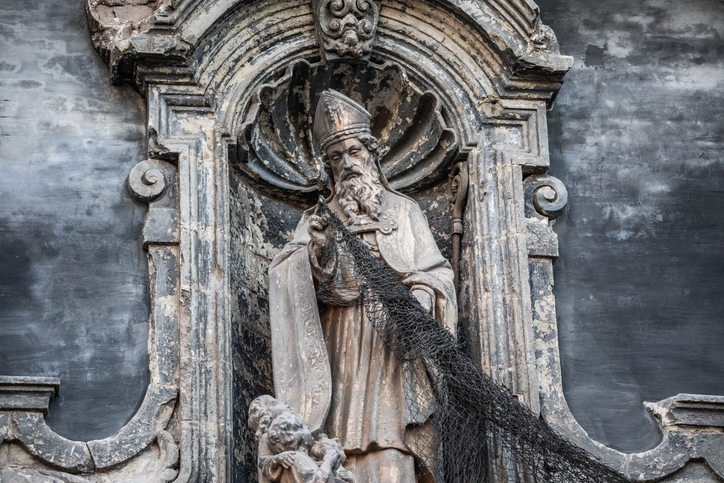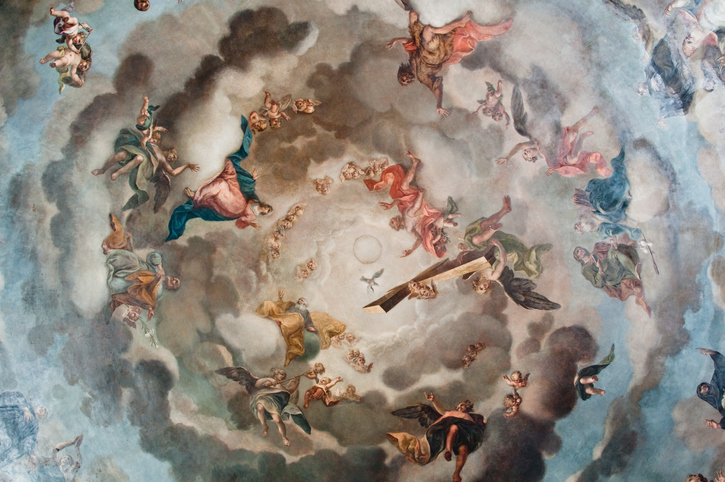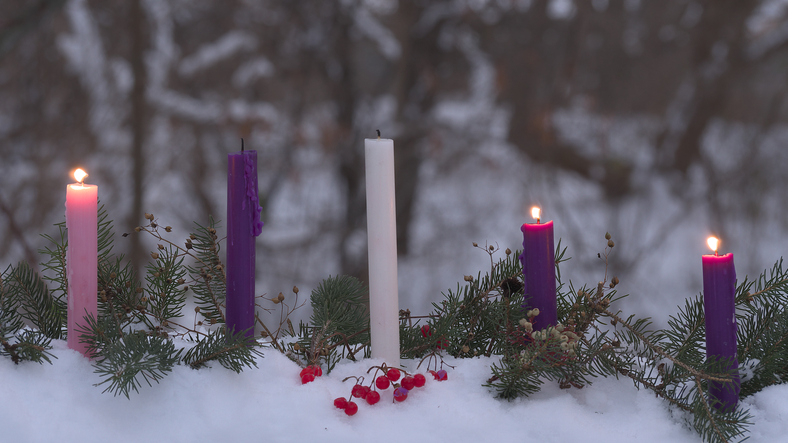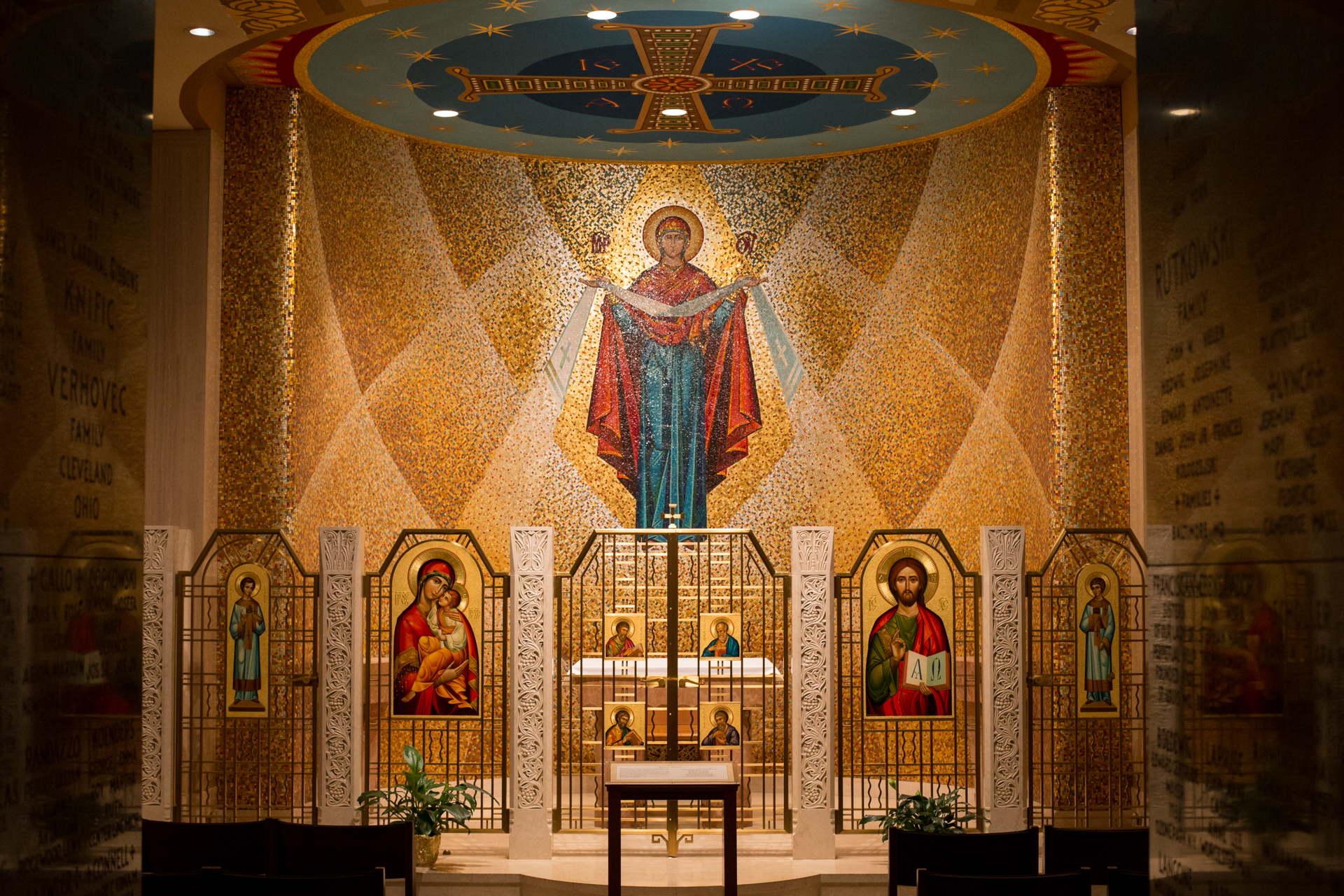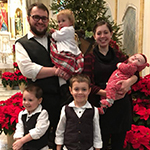“Jerusalem, take off your robe of mourning and misery; put on the splendor of glory from God forever.”
What a beautiful way to start the day, huh? All of us want to flee mourning and misery and put on the splendor of God. Our company just finished a conference with NFCYM where myParish App was the official app of the conference. On my flight back we got delayed and were stuck in the Chicago airport. We tried to get to our hotel for the night but got on the wrong bus. After getting off, I realized I left my phone on that bus and we had to wait a half hour for it to come back around. Long story short, we got two hours of sleep and I am now writing to you from a little plastic chair in the Chicago airport.
I needed a little pick me up this morning, and here the word of God delivered in a big way. Sometimes we go through times of misery, but the reminder of the Gospel is that it does not last. We are all made for glory and happiness with our God. The saints call these moments of ups and downs in our lives times of desolation and consolation.
Sometimes we have times where it is hard to see God working, it is hard to find hope. These would be moments of desolation. But in reality, we know that God is always there and ultimately he wants us to be happy with him forever. I like to relate this to a solar eclipse. For a few seconds, the sun is not visible. It is completely obstructed. But we know that even though we cannot see it or even feel its effects, that it is not gone forever. The eclipse finishes and the sun emerges. It is the same with the son of God.
Sometimes we feel like we can’t feel or see or hear God, but then those moments of consolation come where we truly feel his peace and love and live in that peace. These moments remind us that he never left and that we do not have to be afraid. St. Francis De Sales once said, “Fear is a greater evil than evil itself. O you of little faith: what is it you fear? Do not be afraid. You are walking on water, amid wind and wave, but you are with Jesus. What is there to fear? If fear takes hold of you, cry out strongly, ‘O Lord, save me!’ He will hold out a hand to you. Hold on tight and go forward with joy.”
I don’t know what kind of suffering is happening in your life right now. It might not be as little as losing a phone and getting very little sleep, (I got the phone back by the way) but whatever your suffering is, do not give up hope. Wait for the Son to appear again and give you his unconditional love and peace. From all of us here at Diocesan, God Bless!

Tommy Shultz is a Solutions Evangelist for Diocesan. In that role, he is committed to coaching parishes and dioceses on authentic and effective Catholic communication. Tommy has a heart and a flair for inspiring people to live their faith every day. He has worked in various youth ministry, adult ministry, and diocesan roles. He has been a featured speaker at retreats and events across the country. His mission and drive have been especially inspired by St. John Paul II’s teachings. Tommy is blessed to be able to learn from the numerous parishes he visits and pass that experience on in his presentations. Contact him at tshultz@diocesan.com.

